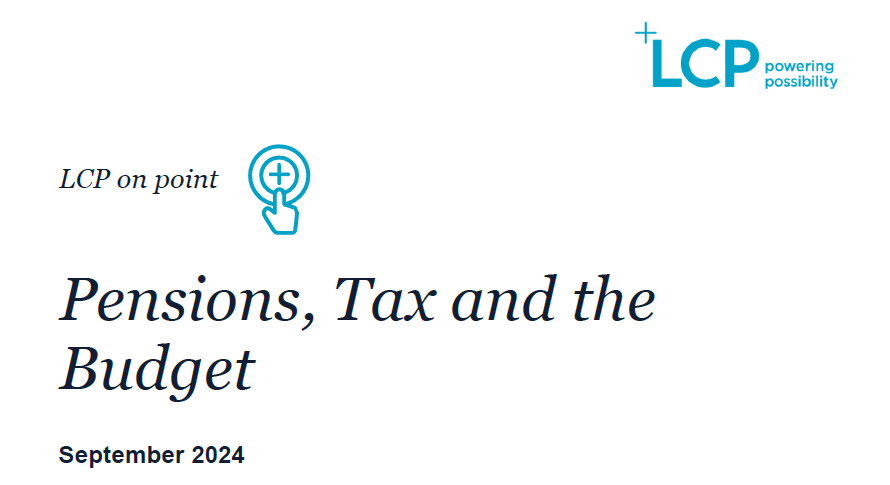
Speculation surrounding the contents of Labour’s first Budget on October 30th continues to increase and we are currently answering an unprecedented number of questions specifically relating to pensions.
The Labour manifesto seemingly ruled out increases to national insurance, income tax and VAT, which leaves relatively few options for tax rises elsewhere.
We have no magical crystal ball but what we can offer you is an analysis of what may change with pensions and as importantly, the context and how changes may be implemented.
We stress this is not advice and Rachel Reeves could still surprise us all by changing very little or by introducing something completely unexpected (flat rate pension tax relief for example, albeit this could be hugely complex to implement and could potentially create millions of losers, notably in the public sector).
What might change?
1.Tax-free lump sums – We’ve seen two possible options.
-
- Instead of allowing 25% of a pension (subject to a lifetime maximum of £268,275), reduce this to a lower percentage.
- The lifetime maximum cap of £268,275 could be reduced.
The first of these options would create smaller average losses amongst those who lose out but would spread them much more widely. Allowing a smaller percentage of pensions to be taken tax-free would, in principle, cause losses amongst everyone who was likely to draw a pension and take a lump sum, including millions of low earners with modest pots because of automatic enrolment.
This would rather undermine any goal of avoiding upsetting too many people. It is more likely therefore that the Government might consider simply reducing the lifetime cap on tax-free cash. For example, the Fabian Society has recently published a report suggesting a £100,000 limit on lifetime tax-free cash.
2. National insurance – National Insurance Contributions (NICs) are paid by employees and employers on earned income, so why not levy national insurance on employer pension contributions? Any such change could be implemented quickly and there is the potential to raise billions of pounds.
It could be argued that this is simply closing a loophole where remuneration packages are explicitly structured to minimise NI liabilities and would remove an unfairness between employees in firms which offer salary sacrifice and those which do not.
3. Pensions, death, and taxes – There are two main respects in which wealth held in the form of pensions receives favourable treatment in the event of the death of the owner, and either or both of these could receive attention from the Chancellor.
-
- Where a person dies under the age of 75 and leaves behind a pension pot, their heirs can generally draw from this pot free of any income tax
- Pension savings are generally not included as part of an estate for Inheritance Tax purposes.
One reform option would simply be to apply the income tax treatment which currently applies for deaths at age 75 or over to all deaths. It is understandable that the age 75 threshold could be felt to be an arbitrary cut-off. The likely tax take for this option is difficult to quantify and may not be worth any political fallout.
In general, money held in the form of a Defined Contribution (SIPP/Personal Pension) pension pot is simply excluded when estates are valued for IHT purposes. This contrasts with the treatment of, for example, ISAs, whose value counts in full as part of the estate when money is passed on between the generations.
The government could decide this is simply too generous and remove the IHT exemption, but implementation challenges around some form of protection for existing pensions and the payment of an IHT liability by personal representatives before they receive the pension fund.
Its difficult to see any “easy wins” for the government and the need to balance the public finances whilst continuing to encourage individuals to save for an adequate retirement is a serious challenge.
Rest assured, we will be analysing and commenting on any major changes in the Budget, however if you have any pressing questions, simply contact us.
We are grateful for the thoughts and wisdom of Sir Steve Webb (Partner at LCP and former Minister of State for pensions) and his detailed and insightful paper, which you can download by clicking on the image below.
If you have any questions relating to this article, please get in touch on 01825 76 33 66 or via the form below.

